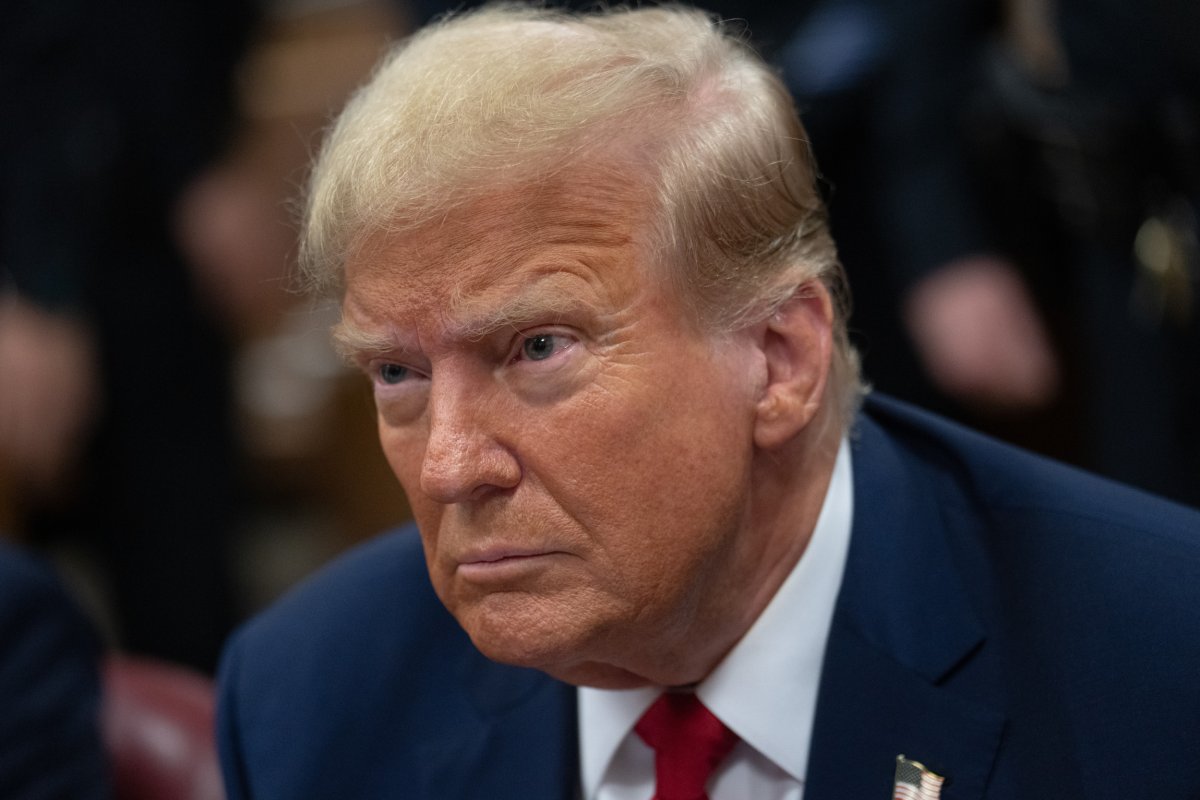Call it a constitutional irony that, on the very day the U.S. Supreme Court heard arguments about the limits on the power of a partisan prosecutor to weaponize criminal statutes to imprison a president, a prosecutor in New York was in a courtroom seeking to imprison the former and perhaps next president. In this era of high speed lawfare and road rage level partisanship, strong guardrails are needed.
If a president slips out of the White House and kills someone he's mad at, the law already allows him to be criminally prosecuted and politically impeached. The tougher question, which is being hotly debated in the Supreme Court this week, is this: When a president carries out his official duties, can he be prosecuted for that?
We know for sure he can't be sued for it.
In 1972, after former President Richard Nixon faced civil lawsuits related to his official actions taken in office, the Supreme Court in Nixon v. Fitzgerald held that, due to the special nature of the president's responsibilities, presidents "require absolute exemption from liability."
The Nixon case provided the reason why the same protection must extend to criminal liability for official acts: "Absolute immunity is appropriate when the threat of liability may bias the decisionmaker in ways that are adverse to the public interest."
That word "absolute" is a rarity in constitutional law. Courts typically prefer to paint jurisprudential art with the smallest of brushes, even when broader strokes might evoke a bolder notion. But in this instance, the Court granted the widest possible liability protections, so a president wouldn't be distracted from the important duties of office.
If a threat of being ordered to pay money for a civil claim is a deterrent enough to distract a president from doing the work of the executive branch, the threat of being sent to prison is a dinosaur-sized distraction.

The problem is that partisans seek to use any available tool to attack an opponent without realizing that the tool might someday get turned on them. Squirting your neighbor with a hose is a hoot until she gets out her pressure washer.
Let's look a few decades down the road. A president who you strongly support is in office, advancing all the policies you support. Yay! But the president, on a swing through a state controlled by the opposing party, takes a military call where he authorizes a drone strike in a foreign land. Because the president acted too quickly, the targeting is faulty, and an innocent U.S. citizen is killed. A local prosecutor running in a primary election for state attorney general charges the president with negligent homicide and pushes for a prison sentence. Boo! Suddenly, you're bellowing for some protection for the president. But the other party denies such a shield exists.
If you think this scenario is far-fetched, either you haven't kept up with the news or you'd make a lousy weather forecaster.
You might also believe this is a modern concern. Not so. Early America called these groups "factions." In Washington's Farewell Address, he warned about the dangers of "domination of one faction over another, sharpened by the spirit of revenge, natural to party dissension, which in different ages and countries has perpetrated the most horrid enormities."
You don't say.
James Madison, writing in Federalist Number 43, gave a similar warning about the never-ending cycles of political retribution as the framers wrote the impeachment clause in the U.S. Constitution. He wanted to avoid cycles of political revenge that "have been the great engines by which violent factions ... have usually wreaked their alternate malignity on each other."
Fast forward 235 years, and we see the things that Washington and Madison were worried about playing out in real time in a New York court room.
But one need not even mention Donald Trump's presidency to illustrate precisely why the Founding Fathers designated impeachment as their ultimate punishment for a president. Criminal charges as a political tool to neutralize and distract the Commander in Chief worried the founding fathers. Their Constitution protects official presidential actions from both civil and criminal prosecution. But they were wise enough to leave checks and balances on that broad grant of power. Should a president ever be impeached and convicted in the Senate, he would forfeit his office but also be stripped of that immunity and be liable to legal action.
When law becomes a weapon of political revenge, it's our democracy that takes the fatal blow. Worse yet, it doesn't uphold justice—it undermines it.
Mark R. Weaver is a prosecutor and formerly served as a Justice Department spokesman and Deputy Attorney General of Ohio. He is the author of "A Wordsmith's Work." X: @MarkRWeaver
The views expressed in this article are the writer's own.
Uncommon Knowledge
Newsweek is committed to challenging conventional wisdom and finding connections in the search for common ground.
Newsweek is committed to challenging conventional wisdom and finding connections in the search for common ground.
About the writer
To read how Newsweek uses AI as a newsroom tool, Click here.








